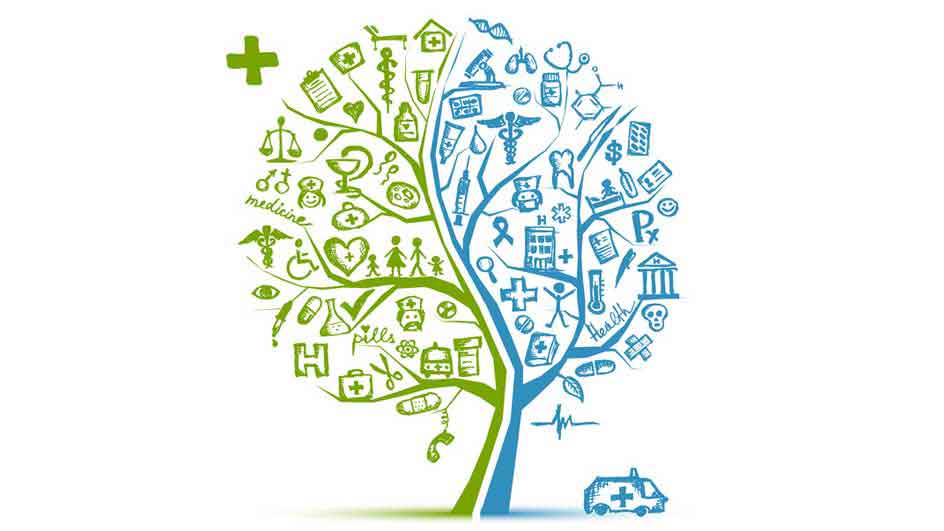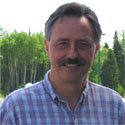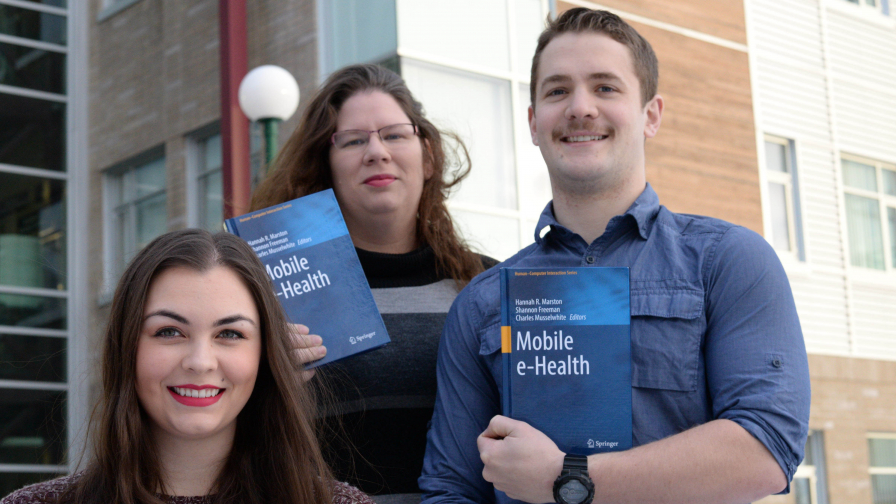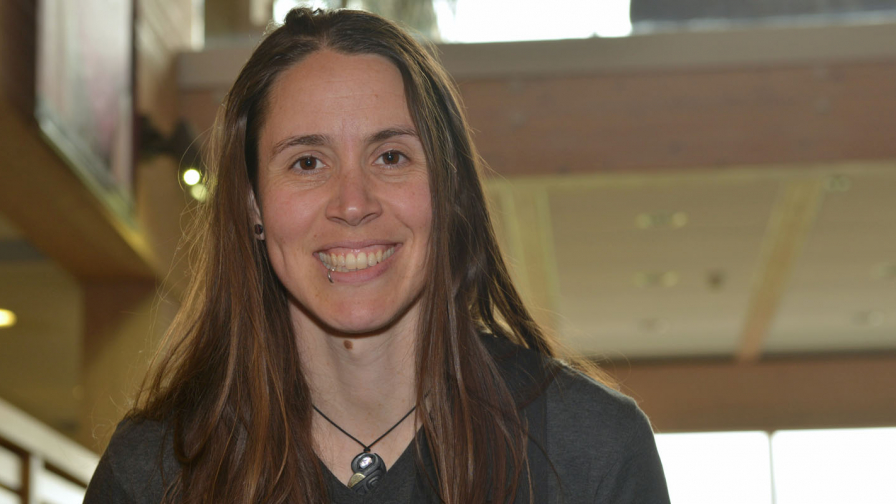Faculty and Staff

Faculty in the School of Health Sciences
Jalil Safaei
Chair for The School of Health Sciences
PhD University of Manitoba, MA and BA University of Shiraz
Ranjana Bird
Professor, School of Health Sciences
Phone: 250-960-6632
Email: ranjana.bird@unbc.ca
Office: 10-3580
Dr. Bird completed her B.Sc. in Biology from the University of Waterloo and M.Sc. and Ph.D in Nutritional Sciences from the University of Guelph, where she specialized in Nutritional Toxicology. She has been recognized by the American Association for Cancer Research for her discovery of a novel method to identify early precancerous changes in the colon. This process is now used internationally to identify the risk of developing colon cancer, and potential cancer- preventing agents.
In 1991, Dr. Bird received the Natural Sciences and Engineering Research Council's Women in Science Career Award at the University of Manitoba, where she served as professor, Associate Dean of Graduate Studies, and the Dean of the Faculty of Human Ecology. In 2003, she was appointed Dean of Graduate Studies at the University of Waterloo.
R. Luke Harris
Associate Professor PhD (Alberta) BSc (Acadia)
Phone: 250-960-5109
E-mail: luke.harris@unbc.ca
Office: 10-3590
Dr. R. Luke Harris teaches undergraduate and graduate physiology and seminar courses and he is the Project Leader of the Northern BC Near-Infrared Spectroscopy (NIRS) Research Laboratory.
Luke, his students, and his colleagues use non-invasive instruments in the NIRS Research Lab to study the fundamental properties of muscles and of the nervous system—collectively referred to as the neuromuscular system. Dr. Harris is interested in understanding how the neuromuscular system adapts to injury and exercise, with particular emphasis placed on respiratory rehabilitation; recovery after brain injuries—from concussions to strokes; applications of sports science in both competitive and recreational athletes; and how to better manage aging- and dementia-associated declines in function and independence.
Margot Parkes
Professor
PhD MB ChB (New Zealand) MA (Belgium)
Phone: 250-960-6813
E-mail: parkesm@unbc.ca
Office: 10-3510
Dr. Margot Parkes is a Professor at the School of Health Sciences. Margot works with others - across all sectors, disciplines and cultural contexts - to enhance understanding of land, water and living systems (ecosystems) as foundational for health and wellbeing. Margot grew up and completed her medical training in New Zealand, prior to work and training in public health, human ecology and ecohealth in Europe, the Americas and the Oceania region. She came to UNBC in 2009 as Canada Research Chair in Health, Ecosystems and Society.
Margot's research and international collaborations are integrative, partnered and Indigenous - informed, with an emphasis on ecological and equitable approaches to improving health and well-being. Areas of research focus include watersheds and catchments as settings for intersectoral action to improve health; on the cumulative health, environment and community impacts of land and water governance; and on designing for 'co-benefits' that link ecosystems, equity and health (e.g. linking climate justice and regenerative catchments/ watershed practices with community health and well-being). A focus on education runs through all her work, teaching classes on health promotion, ecosystem approaches to health (or, ecohealth), and ecosocial approaches to public health, and designing intergenerational teaching and training programs (e.g. bridging youth, adults and elders in place-based, experiential education initiatives).
Margot's work continues to be informed by Indigenous knowledge and leadership across Oceania and the Americas. She is engaged with a range of research, education and capacity - strengthening initiates that foster next - generation approaches to learning and collaboration to address complex health, equity and sustainability concerns.
Chelsea Pelletier
Associate Professor
PhD (McMaster) MSc (McMaster) BKinH (Acadia)
Phone: 250-960-5283
E-mail: chelsea.pelletier@unbc.ca
Office: 10-3584
Dr. Chelsea Pelletier came to UNBC in 2015 after completing a PhD in Kinesiology at McMaster University and a postdoctoral fellowship at the Toronto Rehabilitation Institute. She is an exercise physiologist with experience working with individuals with chronic disease and physical disabilities, and evaluating clinical exercise rehabilitation interventions. Her emerging research program includes a growing partnership with community members, the non-profit sector, and health system decision makers to understand the context, adaptation and implementation of physical activity interventions in northern, rural, and remote communities.
Mamdouh Shubair
Associate Professor
PhD MSc BSc (Waterloo)
Phone: 250-960-6331
E-mail: mamdouh.shubair@unbc.ca
Office: 10-3582
Dr. Mamdouh Shubair is a population and public health epidemiologist. Dr. Shubair started his faculty appointment in the Health Sciences Programs at UNBC in January 2009. He came from McMaster University where he was teaching at the Department of Clinical Epidemiology and Biostatistics. At UNBC, Dr. Shubair's research and teaching interests are focused around chronic disease epidemiology, particularly obesity, type 2 diabetes (T2D), and cardiovascular disease (CVD) in Rural/Remote and Aboriginal populations. Mamdouh is also interested in Disability Management issues where he supervises several graduate students in the Disability Management (DISM) program.
Darlene Sanderson
Professor
BScN University of Alberta, MA School of Youth and Care at the University of Victoria, PhD Interdisciplinary Studies at Simon Fraser University
Phone: 250-960-6386
Email: darlene.sanderson@unbc.ca
Office: 10-3516
I am honoured to have worked with Indigenous communities in British Columbia and internationally on water laws and protection, and language and cultural reclamation. I began my professional career as a registered nurse following a BScN from the University of Alberta (1981) and worked for 17 years as a cardiac nurse. I received my Master of Arts in the School of Youth and Care at the University of Victoria (1999), and then completed a PhD in Interdisciplinary Studies from Simon Fraser University (2008), listening to and learning from Indigenous Elders’ teachings on water.
Dedicated to uplifting Indigenous peoples’ health and education through research, I work with Indigenous communities to support Indigenous self-determination in research design and delivery. My work connects health, education, and law through Indigenous-led research involving water and climate change. I am currently working with the Tl’etinqox and Secwépemc peoples on topics ranging from water issues, development of sovereign Indigenous research centers, COVID-19 response, and community responses to climate change impacts. I continue to work in partnership with Secwépemc people supporting their Water Guardians programme. I have supported indigenization of nursing curriculum development and implementation of on-the-land experiences for nursing students.
Some international activities include working with the Indigenous Environmental Network on the proactive assertion of Indigenous water laws through the creation of Indigenous Nation-led water declarations in Indigenous languages. We have been active at the United Nations Permanent Forum on Indigenous Issues (UNPFII) and the World Water Fora. This work is rooted in the understanding that Indigenous peoples’ world views and ways are central to nurturing healthy futures for of all life.
Tammy Klassen-Ross
Senior Instructor
PhD MSc (Northern British Columbia) BA (British Columbia)
Phone: 250-960-6782
E-mail: tammy.klassen-ross@unbc.ca
Office: 10-3516
Dr. Klassen-Ross has a PhD in Health Psychology. The areas of research Dr. Klassen-Ross studies in include pain management and non-verbal communication of pain using Facial Action Coding system. She is also part of the Northern Medical Program (NMP) providing guidance to the NMP students.
Sarah de Leeuw
Canada Research Chair
Professor, Northern Medical Program
PhD (Queen's) MA (Northern British Columbia) BFA (Victoria)
Cross-Appointed; Northern Medical Program
Phone: 250-960-5993
E-mail: sarah.deleeuw@unbc.ca
Office: 9-383
 Kenneth Prkachin
Kenneth Prkachin
Professor - Emeritus
PhD MA BA (British Columbia) R.Psych
Cross-appointed; Psychology
Phone: 250-960-6633
E-mail: kmprk@unbc.ca
Office: 10-3598
Dr. Ken Prkachin's research deals with health psychology, clinical psychology, pain expression, and the biobehavioural determinants of heart disease. Dr. Prkachin also directs the activities of the Psychophysiology Laboratory.
Staff in the School of Health Sciences
Amanda England
Administrative Assistant, School of Health Sciences
Phone: 250-960-6483
Fax: 250-960-5744
E-mail: amanda.england@unbc.ca


